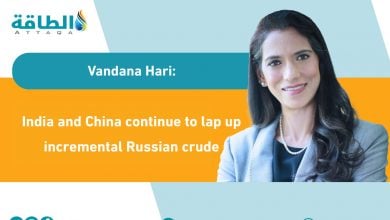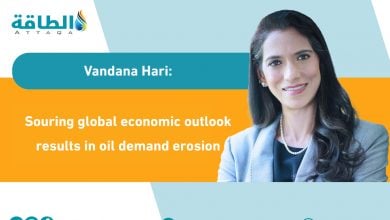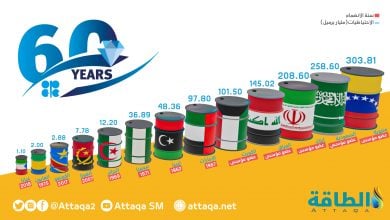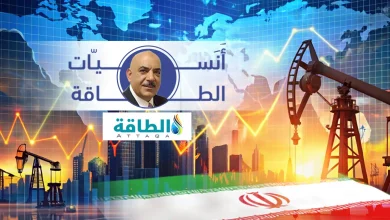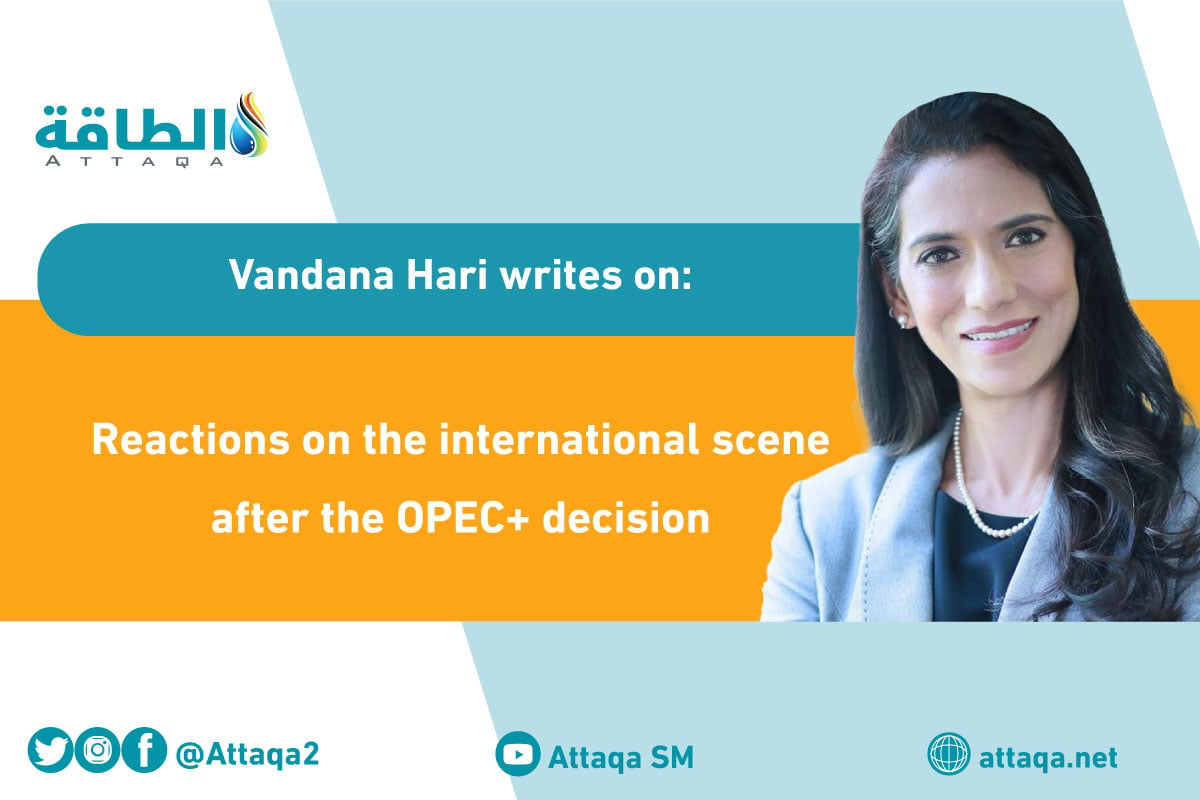
The OPEC/non-OPEC alliance’s decision on October 5 to slash November and December production targets by 2 million b/d ruffled a lot of feathers on the world stage and attracted a tsunami of passionate dissection of the likely political motives and implications of the move.
That line of scrutiny overshadowed analysis from the economic and market stability angles, which deserve greater attention.
From an economic perspective, as well as going by OPEC+’s stated desire to reduce price volatility and foster market stability, the latest decision is an unfortunate one and could not only prove to be ineffective, but also counter-productive.
Politics may have played a role but how important is it?
Let us get the political angle out of the way first. Irrespective of what the energy ministers might say in public, politics cannot be separated from any major OPEC+ decision on production policy.
At the root of all the group’s big decisions is a fundamental tension between what is in the interest of producers and what the major consuming countries desire, especially during times like the present one, when inflation and economic growth are big risks.
The persistent and mostly futile exhortations by the US to OPEC+ over the past several months to keep the market well-supplied so that fuel prices at the pump remain in check has especially pitted the administration of President Joe Biden against OPEC kingpin Saudi Arabia.
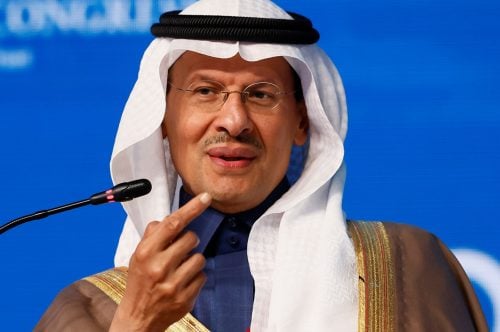
The new spheres of influence across the globe being forged by the Ukraine war are putting the political dimension of OPEC+’s composition and supply management strategies in sharper relief.
Not only is Russia, which is pitted against the West in arguably the fiercest battle of our lifetimes, a key OPEC ally, but it desperately needs higher crude prices and was the first to openly advocate a supply cut ahead of last week’s meeting.
One could agree or disagree with the narrative of Saudi Arabia having sided with Russia over its political arch-rival, the US, in pushing through a production cut.
One could have a view on whether OPEC+ is conveying a strong disapproval of the G7 and European Union embargoing Russian oil and planning to cap its oil export prices.
One could debate the resurrection of the “NOPEC” bill in the US, which aims to target OPEC producers with anti-trust laws.
All these may be useful in trying to gauge OPEC+’s strategy in the context of its evolving relationships with the world’s major political powers.
But the political landscape is far more complex than meets the eye and the snap conclusions are inevitably coloured by the analyst’s national and political affiliations.
Besides, if OPEC+ were to be swayed by which way the political winds are blowing at a given time to craft its production policies, it may end up in decision paralysis, or working at cross purposes with its aim of sustaining market balances and stability, and lose all credibility.
Higher oil prices will hurt economy, demand
So, let us look at the producer group’s decision in the context of global economics and market dynamics.
A steady decline in crude prices from around $100 for ICE Brent futures at the end of August to eight-month lows on September 26, when the front month contract settled at $84.06, was a welcome relief to consumers, governments and central banks, all struggling in the face of decades-high and stubborn inflation.
Brent had been pushed back up to $97.92 as of Friday’s settle, a cumulative 11% rally over five straight sessions in anticipation of and response to the OPEC+ decision.
The US, world’s largest oil consumer, is the most vocal about OPEC+’s role and the most reactive in trying to cool down oil prices by releasing barrels from its Strategic Petroleum Reserve.
But there are major consuming and importing countries, especially in Asia, whose economies are far more sensitive to oil prices and will suffer more if crude remains around $100.
OPEC+ may argue that it was time to rein in supply because of slowing demand and expectations that global inventories will rise through the fourth quarter of this year and the first quarter of 2023.
But the situation is hardly comparable to the 2020 Covid crisis or the 2014-2016 downturn in demand. This time around, we are precariously close to a global recession, coming close on the heels of the Covid shock.
Central banks do not have a choice but to tighten monetary policy even if that pushes national economies over the edge.
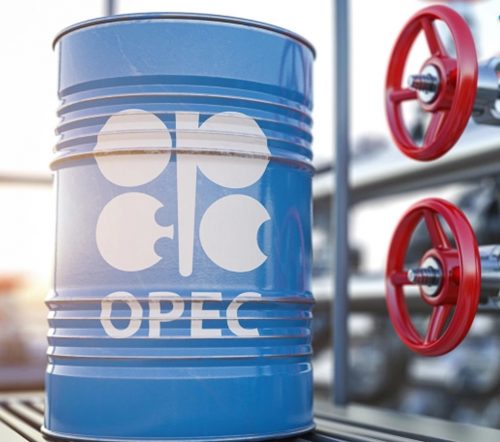
This is not the time to seek $100 crude.
Levels around $70-80/barrel, while tolerable for major producers, could help tame inflation faster, giving central banks some breathing room and enabling a soft landing for the global economy.
They would also keep the world’s post-Covid oil demand recovery on an even keel, which actually benefits OPEC+ more than an accelerated demand erosion from higher prices.
The assertion that oil prices need to be at a certain level to sustain the upstream investment the world badly needs is now mostly theoretical.
The unfortunate truth is that for oil and gas majors and other Western independents, climate objectives are setting the course, not oil prices.
The US is unlikely to be a swing oil producer again, as shale producers stick to their mantra of cash discipline.
The OPEC+ decision has only injected more volatility into the market so far, not reduced it, the only difference being that it has accompanied prices on their way up rather than down.
With an unprecedented mix of uncertainties around global oil supply and demand arising from the worsening energy war between the West and Russia and a global economic deceleration, ensuring market stability may actually not be in OPEC+’s hands for now.
Vandana Hari is Founder and CEO of Vanda Insights, which provides macro-analysis of the global oil markets.
* The opinion expressed in this Article is this of the author. It does not reflect the opinions or views of Attaqa platform.
READ MORE..
- OPEC+ needs to deal with the elephant in the room (Article)
- OPEC keeps a close watch on crude prices and factors (Article)
- The crude oil market has not witnessed fresh triggers to stoke pessimism (Article)
- The way down for crude prices could be long and winding (Article)





